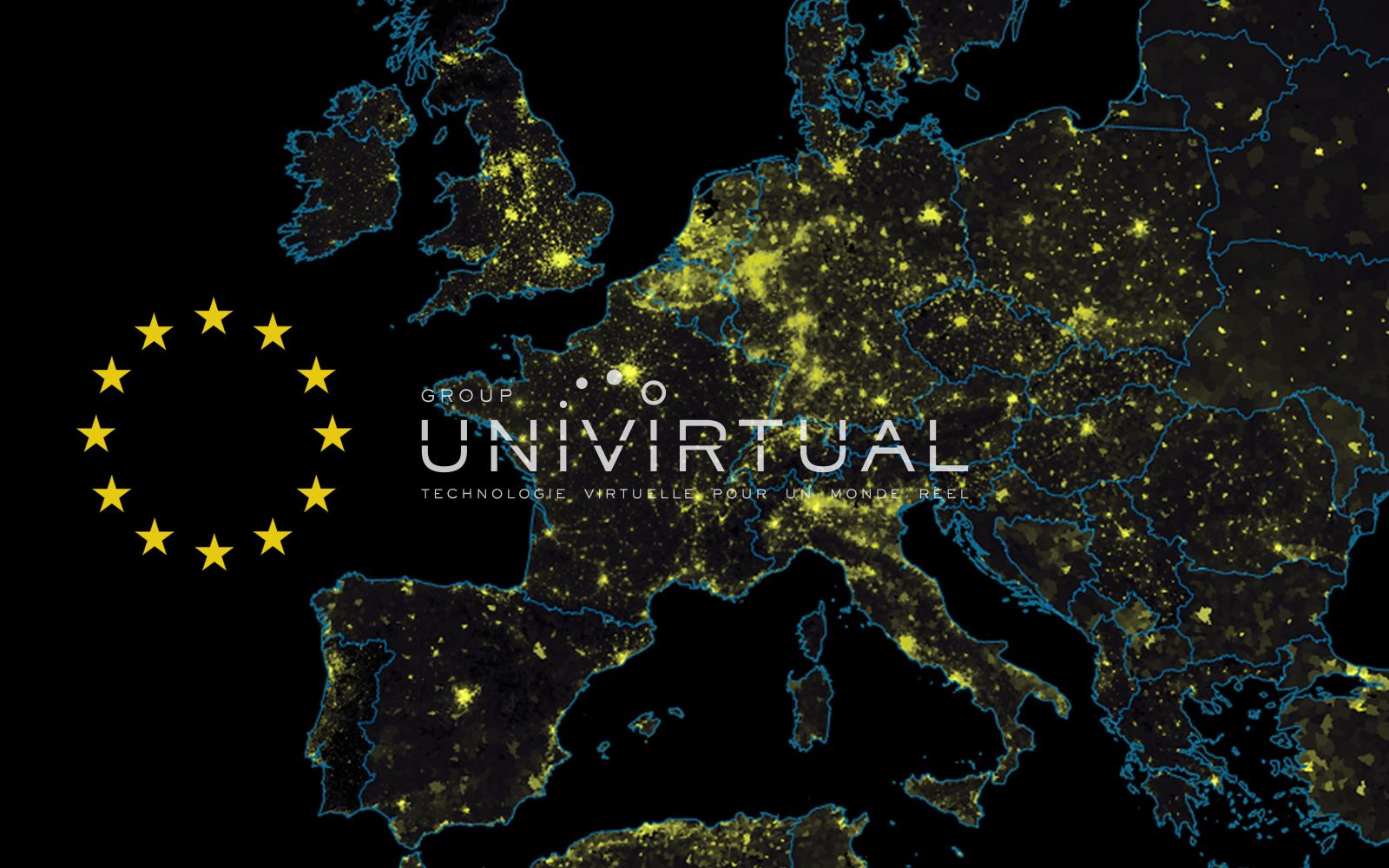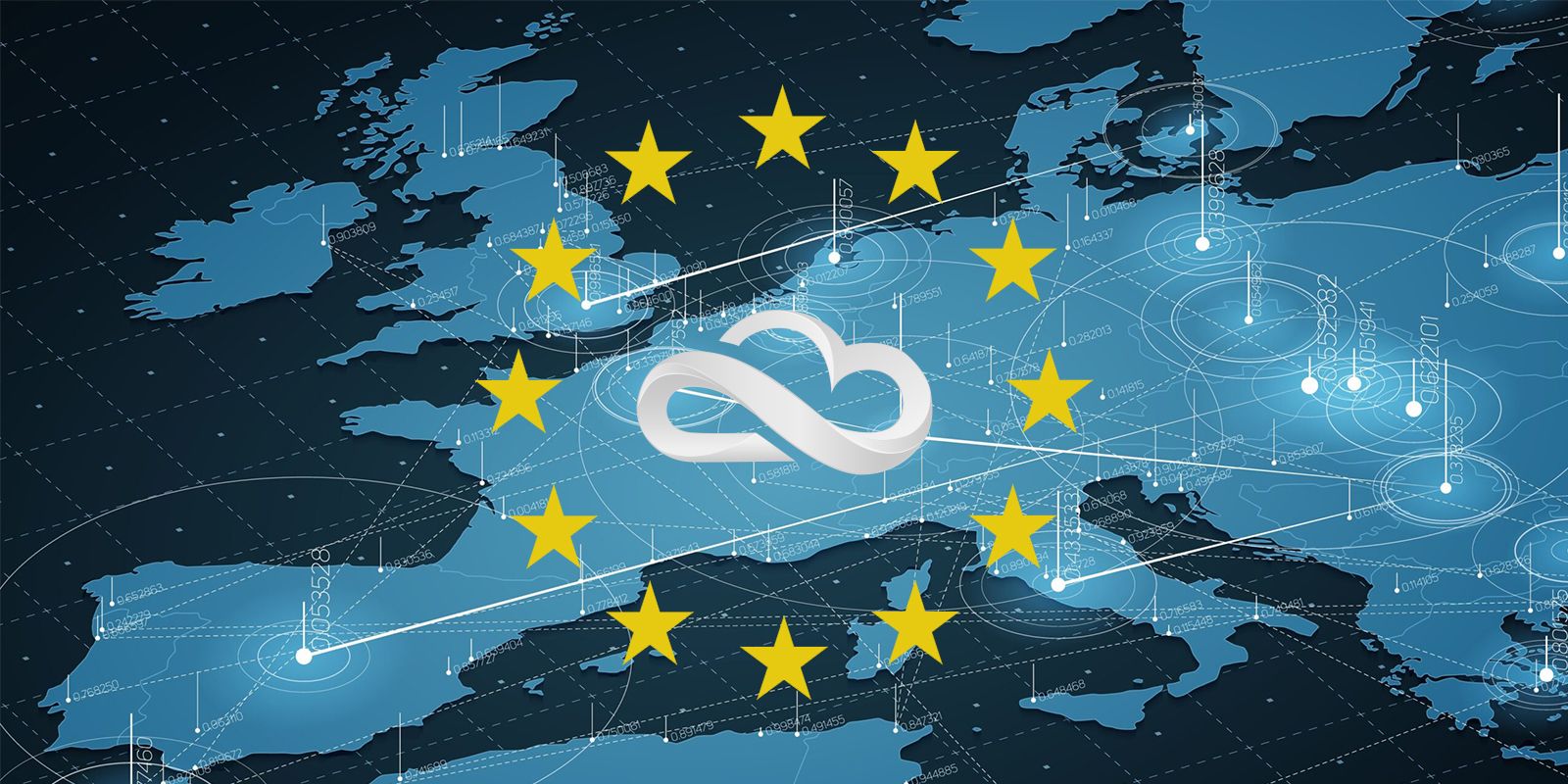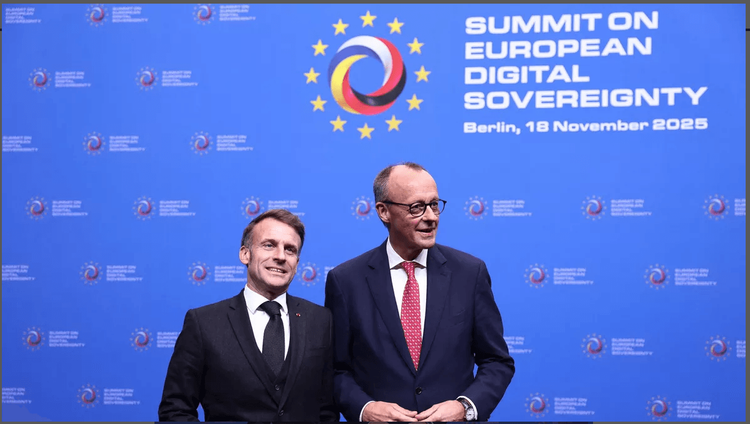Published on 11/25/2025 by Alexandra SCHERRER
Last updated : 11/26/2025
Introduction : successive outages reveal a structural problem
In just a few weeks, two major incidents have paralyzed entire sectors of the global economy: a large-scale outage at Cloudflare, followed by an interruption of AWS services.
Banking sites inaccessible, payments blocked, supply chains disrupted: a spectrum of vulnerability rarely so visible.
For SMEs, the warning is direct. By entrusting their data to global platforms subject to foreign laws, whose infrastructures are often opaque, they lose their ability to guarantee resilience, security, and trust.
In this context, digital sovereignty is no longer optional. It becomes the new competitive advantage for agile, credible, and sustainable companies.
1. The hidden risk behind cloud giants : a dependence that weakens SMEs
American hyperscalers have built an impressive global ecosystem, but this centralization creates a major risk : a single incident can trigger a worldwide domino effect.
The AWS and Cloudflare outages proved it :
- banking services unavailable,
- CRMs unusable,
- ERPs blocked,
- e-commerce paralyzed.
For an SME, even a few hours of downtime can cause :
- loss of revenue,
- loss of trust,
- contractual penalties,
- regulatory risks.
The problem is not their performance—often exceptional—but their legal extraterritoriality and the resulting loss of control.
Forced administrative access permitted by the Cloud Act is the clearest example. For a European SME, this means part of its data may potentially be exposed without local recourse.
2. Digital sovereignty : from compliance to strategic value
For a long time, sovereignty was seen as a topic reserved for states or large public administrations. This is no longer the case.
For an SME, it now represents three major advantages :
A. Total legal control
Hosting in Europe, GDPR compliance, full auditability: an essential guarantee in a NIS2 environment.
B. Reliability and transparency
Trust becomes a key buying criterion.
Customers want to know where, how, and by whom their data is processed.
C. Enhanced security
A sovereign infrastructure enables :
- local supervision,
- fine segmentation,
- advanced protection against cyberattacks,
- absence of uncontrolled transfers.
For many SMEs, this is the first time sovereignty rhymes with performance, visibility, and tangible commercial advantage.
3. When regulation becomes a competitive lever
The convergence of regulatory obligations (GDPR, NIS2, DORA) and customer expectations creates a new dynamic : companies able to demonstrate sovereign digital governance gain the upper hand.
Sovereignty = Trust = Growth
An SME capable of ensuring :
- clear data localization,
- complete traceability,
- proven resilience,
- high-level cybersecurity,
immediately positions itself as a credible partner, particularly in :
- finance,
- healthcare,
- industry,
- legal services,
- digital services.
Conversely, the opacity of some international platforms becomes a commercial obstacle.

Introduction : successive outages reveal a structural problem
In just a few weeks, two major incidents have paralyzed entire sectors of the global economy: a large-scale outage at Cloudflare, followed by an interruption of AWS services.
Banking sites inaccessible, payments blocked, supply chains disrupted: a spectrum of vulnerability rarely so visible.
For SMEs, the warning is direct. By entrusting their data to global platforms subject to foreign laws, whose infrastructures are often opaque, they lose their ability to guarantee resilience, security, and trust.
In this context, digital sovereignty is no longer optional. It becomes the new competitive advantage for agile, credible, and sustainable companies.
1. The hidden risk behind cloud giants : a dependence that weakens SMEs
American hyperscalers have built an impressive global ecosystem, but this centralization creates a major risk : a single incident can trigger a worldwide domino effect.
The AWS and Cloudflare outages proved it :
- banking services unavailable,
- CRMs unusable,
- ERPs blocked,
- e-commerce paralyzed.
For an SME, even a few hours of downtime can cause :
- loss of revenue,
- loss of trust,
- contractual penalties,
- regulatory risks.
The problem is not their performance—often exceptional—but their legal extraterritoriality and the resulting loss of control.
Forced administrative access permitted by the Cloud Act is the clearest example. For a European SME, this means part of its data may potentially be exposed without local recourse.
2. Digital sovereignty : from compliance to strategic value
For a long time, sovereignty was seen as a topic reserved for states or large public administrations. This is no longer the case.
For an SME, it now represents three major advantages :
A. Total legal control
Hosting in Europe, GDPR compliance, full auditability: an essential guarantee in a NIS2 environment.
B. Reliability and transparency
Trust becomes a key buying criterion.
Customers want to know where, how, and by whom their data is processed.
C. Enhanced security
A sovereign infrastructure enables :
- local supervision,
- fine segmentation,
- advanced protection against cyberattacks,
- absence of uncontrolled transfers.
For many SMEs, this is the first time sovereignty rhymes with performance, visibility, and tangible commercial advantage.
3. When regulation becomes a competitive lever
The convergence of regulatory obligations (GDPR, NIS2, DORA) and customer expectations creates a new dynamic : companies able to demonstrate sovereign digital governance gain the upper hand.
Sovereignty = Trust = Growth
An SME capable of ensuring :
- clear data localization,
- complete traceability,
- proven resilience,
- high-level cybersecurity,
immediately positions itself as a credible partner, particularly in :
- finance,
- healthcare,
- industry,
- legal services,
- digital services.
Conversely, the opacity of some international platforms becomes a commercial obstacle.
4. “Zero Trust” : the technical foundation of sovereignty
Digital sovereignty is not just a political choice ; it relies on a robust technical architecture whose cornerstone is the Zero Trust model.
Key principles :
- no identity is trusted by default ;
- access is limited to the strict minimum (least privilege) ;
- continuous verification ;
- behavioral detection.
For an SME, Zero Trust enables :
- fine-grained access control,
- complete visibility over data flows,
- a drastic reduction in internal and external risks,
- easier compliance.
It is the foundation of operational digital sovereignty.
5. Why sovereign cloud emerges as the most reliable answer
The European sovereign cloud provides three guarantees that hyperscalers cannot offer :
1. Absolute legal independence
No submission to extraterritorial laws like the Cloud Act.
2. Cybersecurity adapted to European standards
Local supervision, certified infrastructures, complete transparency.
3. A structural resilience
No global single point of failure, multi-zone architecture, high availability.
For SMEs, it is the most effective way to ensure reliable and compliant business continuity.
6. UNIVIRTUAL’s position : a sovereign vision for more than 25 years
While digital sovereignty is emerging as a key issue today, UNIVIRTUAL has made it part of its DNA for more than a quarter of a century.
UNIVIRTUAL operates a 100% European cloud, hosted in datacenters located in France and Switzerland, certified Tier IV, ISO 27001, and HDS.
Its offerings natively include :
- Black Sentinel, a multilayer security system supervised 24/7 ;
- Falcon Recovery, a sovereign automated multi-zone backup ;
- independent governance ;
- total transparency in data processing.
A model that fits perfectly with the needs revealed by recent crises.
Conclusion : sovereignty is no longer a constraint, but a competitive advantage
The global AWS and Cloudflare outages are not mere incidents. They reveal structural fragility and excessive dependence on infrastructures outside European control.
For SMEs, digital sovereignty becomes a strategic axis :
- a guarantee of resilience,
- a compliance factor,
- a driver of credibility,
- a sustainable competitive advantage.
Choosing a European sovereign cloud means choosing trust, transparency, and continuity. It also means anticipating the digital future of a continent that is finally awakening.



